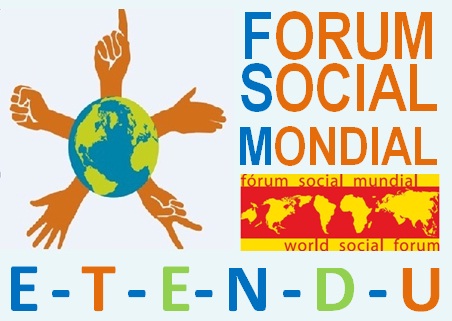-
daket fr63
last modified March 24, 2011 by admin
liste des activités étendues FR Possibilités Nous contacter Bienvenue ! Skypons! Se préparer Echanger Vos dates Vos Invités Contribuer
ETRES HUMAINS VICTIMES DE TRAITE : DES DROITS HUMAINS À LEUR EFFECTIVITÉ
VICTIMS OF TRAFFICKING IN HUMAN BEINGS: FROM HUMAN RIGHTS TO THEIR EFFECTIVENESS
--------------------- Atelier interactif et élargi / Interactive and extended workshop --------------
Français - English - Wolof
Mardi 8 Février/Tuesday, 8th of February 13.30 PM – 16.30 PM
(12.30 PM - 15.30 PM Local time)

VOIR ICI LA TRACE VIDEO ET TCHAT DE L ATELIER ELARGI

1) Participer aux débats en ajouter dans vos contacts skype christelle.dubouchet qui vous invitera au groupe de conversation "Daket fr63 SC traite des êtres humains", vous pourrez ainsi être en conversation directe avec nous.
3) Suivez nous en direct sur Ustream/ See us on direct live on Ustream: http://www.ustream.tv/channel/victims-of-trafficking-in-human-beings-from-human-rights-to-their-effectiveness |
Contact par courriel : daket-fr63d (a) lists.openfsm.net
Qu’est ce que la traite des êtres humains ?
C’est le fait de recruter, héberger ou déplacer une personne d’un endroit à un autre en vue de l’exploiter pour en tirer un bénéfice : la prostituer, la forcer à travailler, la forcer à mendier, la forcer à commettre des délits, la forcer à donner ses organes. Cette personne est souvent trompée, enlevée, vendue…
Comment prévenir la traite et protéger les victimes ?
Il existe des conventions internationales, des textes de lois pour prévenir la traite et protéger les victimes, mais ces outils juridiques restent incomplets et, quand ils existent, ils ne sont pas toujours appliqués.
Comment rendre les droits des victimes effectifs? En s’appuyant sur les textes et les actions engagées par les autorités publiques et le milieu associatif, comment faire reconnaître et respecter les droits humains des victimes de traite ? Quelles actions mener, quels plaidoyers soutenir aux niveaux local, national, régional et international en privilégiant la collaboration entre acteurs publics et privés?
What is trafficking in human beings?
It is defined as follow: it is the recruitment, harbouring or displacement of a person from one place to another in the same country or to another one in order to exploit him/her to get a profit : forcing the person to prostitution, to work, to donate organs, to beg, to commit crimes. Most of the time the person is misled, abducted, or sold...
How to prevent trafficking and protect victims?
There are international conventions and national laws to prevent trafficking and protect the victims. However, these legal tools remain incomplete and, when they exist, they are not always enforced
How to make the victims rights effective? Relying on the existing texts and the actions undertaken by the public authorities and the NGOs, how to obtain the recognition and the enforcement of the human rights of victims of trafficking? What actions can be conducted, which advocacy should be supported at local, national
Au programme :
· Les différentes formes de traite dans le monde - mini-film
· Reconnaître les différentes situations de traite pour les combattre – photo-langage
· Mesures concrètes prises à différents niveaux, du local au mondial, pour que les droits des victimes soient respectés – interventions de :
Représentants de la société civile :
- Najla Chahda, du Centre des Migrants de Caritas Liban,
- José René Taz, du Centre des Droits de l’Homme Miguel Augustin Pro Juarez, Mexique,
- Gabriela Chiroiu, de Caritas Bucarest, Roumanie.
Représentants du pouvoir public :
- Eric Panloup, Conseiller Technique en Europe du sud-est
- Moustapha Ka, Ministère de la Justice du Sénégal.
· Elaboration de propositions concrètes pour renforcer, améliorer, rendre effectifs les droits des victimes aux différents niveaux (local, national, régional, international) par une collaboration entre associations et pouvoirs publics – groupes de travail
· Recommandations pour un plaidoyer visant l’effectivité des droits des êtres humains victimes de traite
Coordination : Geneviève COLAS, Secours Catholique - Caritas France, et coordination du Collectif "Ensemble contre la traite des êtres humains"
On the agenda:
· The various forms of human trafficking around the world - short movie
· Acknowledging the various situations of human trafficking to fight against them - picture – debate
· Concrete measures taken at various levels, from local to global, for the respect of the victims’ rights - interventions from
Representatives of the civil society:
- Najla Chahda, from the migrant centre of Caritas Lebanon
- José René Taz, from Human Rights Centre Miguel Agustin Pro Juarez in Mexico,
- Gabriela Chiroiu, from Caritas Bucarest / Romania.
Representatives of executive power :
- Eric Panloup, Technical regional advisor in South East Europe
- Moustapha Ka, Ministry of Justice of Senegal.
· Elaborating concrete propositions to strengthen, improve, render effective the victims’ rights at various levels (local, national, regional, international) by the collaboration of NGOs and institutions - working groups
· Recommendations for a coherent advocacy to concretize the rights of victims of trafficking
Coordination : Geneviève COLAS, Secours Catholique - Caritas France, and coordination of "Collectif Ensemble contre la traite des êtres humains"
Animation :
José-René Taz, Mexico
Najla Chahda, Lebanon
Gabriela Chiroiu, Romania
Movses Hakobyan, Armenia
Nataliya Holynska, Ukraine
Ariela Mitri, Albania
Jakup Sabedini, Kosovo
Misolav Valenta, Bosnia-Herzegovina
Laurence Huard et Maya Ben Salah, Algeria
Maria Juanita Dano, Senégal
Eric Panloup, Anne Joubert, Olivier Chazy, Sophia Lakhadar, Stéphanie Selle, Armelle Rolland, Aliette Chauveau, Juliet Christmann, France
Partenaires :
Caritas Internationalis
Caritas Europa
Christian Organisations Against Trafficking in Human Beings
Secours Catholique - Caritas France
Caritas Sénégal
Caritas Liban
Caritasi i Kosovës
Caritas Bosne i Hercegovine
Caritas Albania
Asociata Caritas Bucuresti
Caritas Algérie
Caritas Arménie
Caritas Ukraine
Comité Contre l'Esclavage Moderne
Forum Social Mondial Dakar 2011
Planète Enfants
Karibu Kinshasa
Collectif "Ensemble contre la traite des êtres humains"
Centro de Derechos Humanos